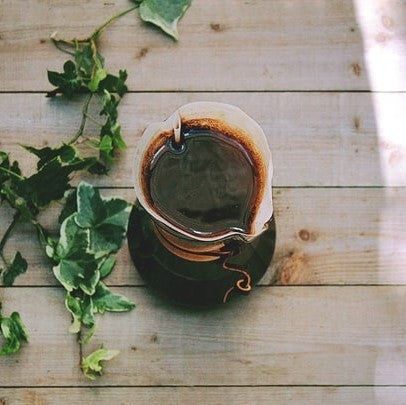
What is coffee over-extraction and under extraction?
Share
Have you ever wondered why your coffee tastes off on a particular day? Or if there is even a word for it? The answer is yes, there is. There are two very important words in coffee lingo: over-extracted and under-extracted. What do they mean?
Extraction is the word used to refer to coffee brewing. It’s similar to how we use “cook” for foods: overcooked, and undercooked work in a very similar way, too. Here’s a more clear definition of these two coffee-related words:
- Under-extracted: Brewed coffee with a lower concentration of coffee per ml. Diluted, mild, or weak coffee that lacks in flavor and aroma.
- Over-extracted: Brewed coffee with a higher concentration of coffee per ml. Thick, bitter, or overly strong coffee that has a distinctly burnt and/or bitter flavor.
Knowing what each of these are, let’s focus on something much more important: how to fix them.
The best way to go about it is prevention. Fixing is going to prove to be much more difficult than avoiding over- or under-extraction in the first place, but we will give you a few tips on fixing at the end of the article.
How to prevent under-extraction and over-extraction
Under-extraction is the most common mistake when brewing coffee, even more than over-extraction. This is particularly true when brewing coffee at home. There are two very important factors that contribute to under-extraction:
- Water temperature: When brewing coffee at home, too often we use tools that aren’t made for brewing coffee. Heating water in a teapot is common, but we need to measure water temperature. Too frequently people think water is hot enough, yet it isn’t. Water below a certain temperature (86°C) will result in under-extracted coffee.
On the other hand, it’s not unheard of to use boiling or off-boil water to brew coffee. This will always result in over-extracted coffee and should be avoided at all times.
Use proper tools, measured teapots, or a simple kitchen thermometer that the water is at the ideal temperature.
- Ground distribution: Simply pouring grounds is not always sufficient. If the grounds are not evenly distributed, water won’t flow through all the coffee grounds. This way, only some of the grounds are extracted, resulting in under-extracted coffee. Always check the grounds are evenly distributed. If not, use a toothpick or a spoon to spread them out evenly.
- Brewing time: Perhaps the most important aspect in extraction. Eyeballing may be convenient, but it is hands down the number one cause of under and over extraction: always google how much time you should brew depending on 1- brewing method and 2- how much coffee you’re using. Use a timer. Too little brewing time will result in under-extraction, while too long will result in over-extraction.
Fixing brewed coffee
If the mistake’s already been made, there are ways we can still salvage the coffee, although the taste won’t be the same.
For under-extracted coffee: quickly run the brewed coffee through the grounds again. If needed, add a bit more grounds and a little more hot water. Your best bet would be to repurpose the coffee by making coffee with tea.
For over-extracted coffee: Sugar and baking soda: the sugar cancels out the bitterness, while the baking soda neutralizes the overwhelming sourness of over-extracted coffee. You can always add a lot of milk/cream to create a whole other beverage.
